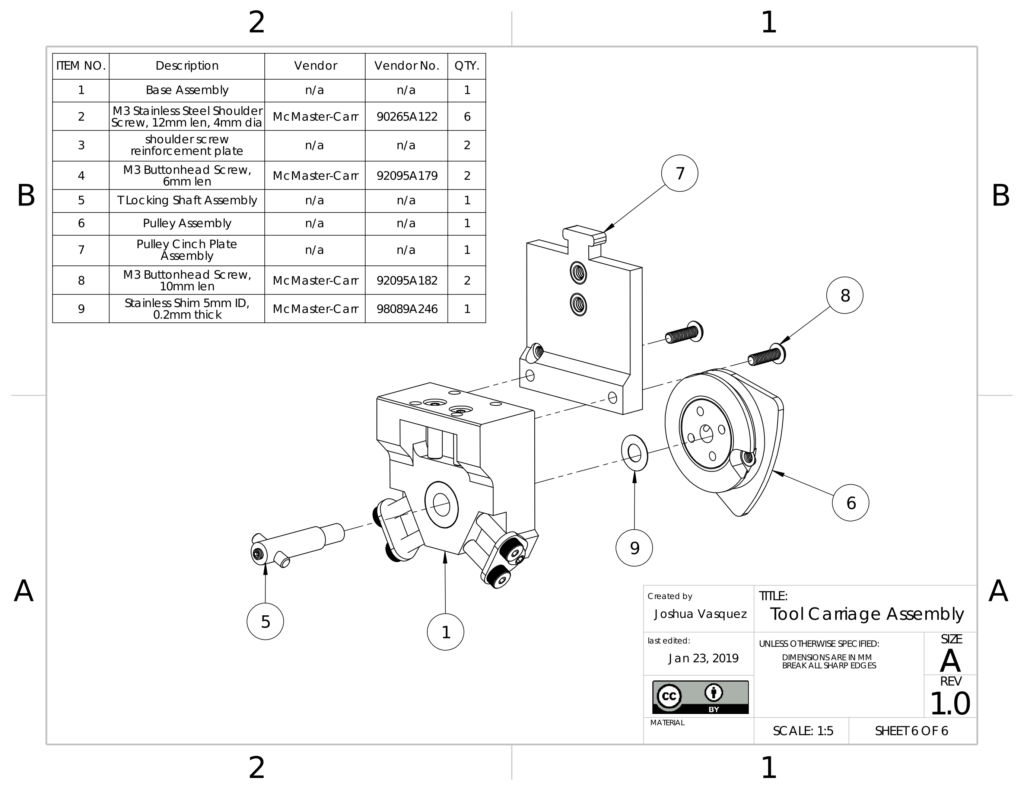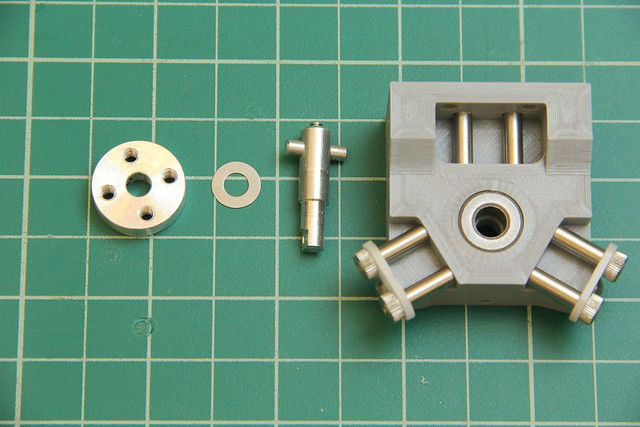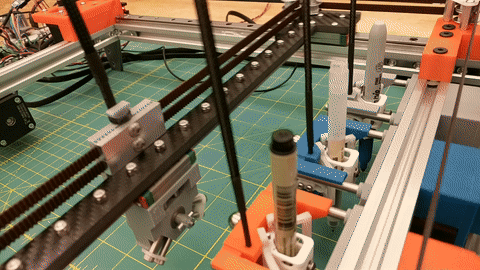MakeItSo is helping scientists design and execute custom experiments with multiple tools.
Team members: Nadya Peek, Hannah Twigg-Smith, Joshua Vasquez
Problem
Scientific research is results-driven. Automated tools offer precision, repeatability, and high-throughput data collection while freeing scientists to focus on other parts of their research. However, today’s automated laboratory tools are typically expensive, application-specific machines with restrictive software interfaces. While these machines can increase productivity, their inflexibility denies scientists many benefits from automating simple real-world tasks.
Solution
MakeItSo allows scientists to automate parts of experiments through an open-source base that can be customized with various tool heads, such as inspection cameras and pipettes, for computer-controlled processes.
Scientists build the tool base themselves based on MakeItSo’s technical drawings, using a mix of 3D-printed parts and readily available stock materials. Users can also add new capabilities and functionality. The tool base holds the attached tool in a precise location, allowing users to repeat experiments and increase the accuracy of their data collection.
“Broader access to precision will lead to greater diversity in application. We constantly encounter other researchers who want to generate precise research results but are hampered by their tools.”
— Nadya Peek, Assistant Professor at the University of Washington and MakeItSo team lead


Vision
Open-source hardware is sometimes limited to particular manufacturing processes, such as electronics fabrication or flat-pack plywood construction. With their open-source hardware designs, MakeItSo aims to widen access to automation for scientists by making open-source hardware work for complex electromechanical systems.
“MakeItSo allows scientists to focus on experiment design and result interpretation by taking care of the material handling and instrumentation portions. That means that people who otherwise would be excluded from science — because of the hours in the lab, the physical requirements of lab equipment, or other exclusionary parts of the science status quo — can now participate.”
— Nadya Peek, Assistant Professor at the University of Washington and MakeItSo team lead

Over the next few weeks, we’ll be spotlighting the accelerator cohort teams. Subscribe to our newsletter, the Tool Foundry Journal, to learn more about the cohort teams and follow their progress.